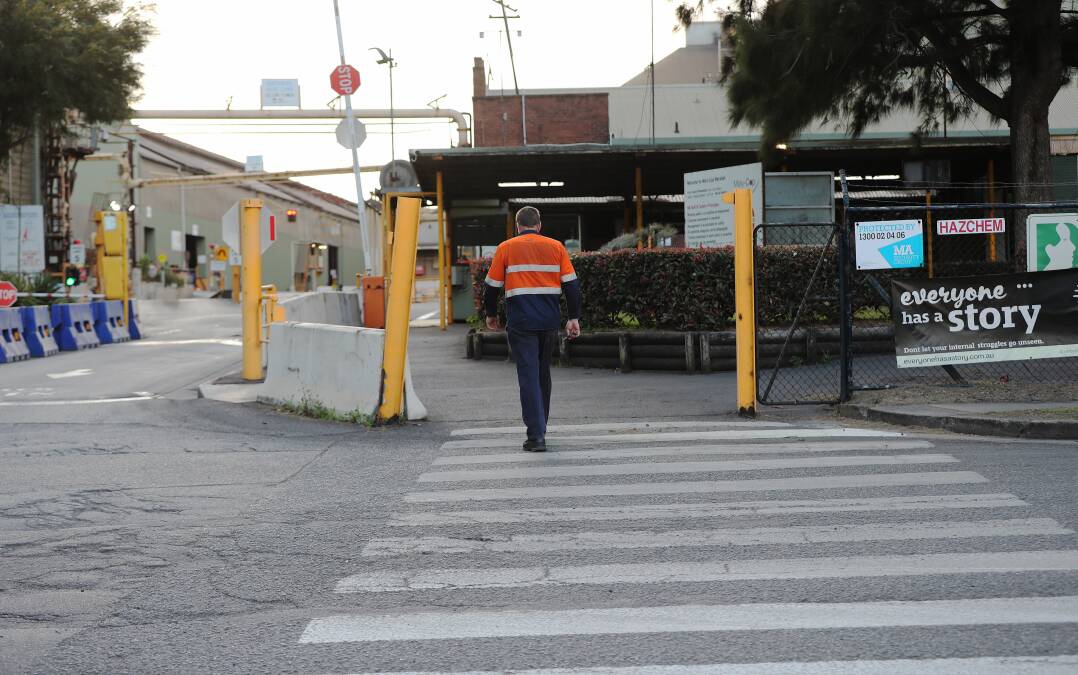
The announcement in April 1997 of the closure of BHP steel smelting in Newcastle sent shockwaves across the nation. The sentiment seemed to be if we can't even make steel in Newcastle, what does the future hold for manufacturing in Australia?
To his credit, Prime Minister John Howard acted on this fear and spent two days in the city that May listening to industry, union and community concerns. Retraining programs were put in place by BHP and the federal government to smooth the pathway towards a changing economy.
Since then, we have witnessed the shutdown of other smelting operations in the Hunter Valley, both aluminium (Kurri Kurri) and lead (Boolaroo). This month's announcement of the Molycop scale-back of steel operations in Waratah is the latest episode in the continued decline of metal manufacturing in the Hunter region.
Molycop (formerly Comsteel) celebrated its 100th anniversary in 2018. Since its founding, it has employed over 20,000 people and is Australia's only railway wheel manufacturer, producing 40,000 wheel and axel sets in its anniversary year.
The company was established after World War I because it was impossible to source this product overseas in the 1920s. Now, in the 2020s, it will be just more steel products we will have to buy from China.
Ironically, last week, Prime Minister Anthony Albanese and Industry Minister Ed Husic were here promoting their National Reconstruction Fund plan to revitalise Australian manufacturing. The minister said steel had a big part to play in Australia's future, that "this is a government determined to act". Really? They were blindsided by the Molycop job redundancies a day later.
It's a pity that for the 250 workers without a job the minister didn't do something sooner, with Molycop announcing the shedding of half of its Waratah workforce this month.
Molycop made it clear to the Anti-Dumping Commission (ADC) years ago that the jobs of half its Newcastle workers were at stake in their tariff discussions.
It said its production of steel products such as grinding balls for mining and railway wheels at its Mayfield plant were not competing on a level playing field with Chinese companies, and intervention such as the imposition of a tariff was required.
Predictably, the ADC did not intervene and 100 years of high-quality steel production in Newcastle has now ended.
According to Newcastle anti-dumping expert John Heslop, China has "gamed" the World Trade Organisation Anti-dumping process for more than 20 years, and our Department of Trade (DFAT) does not understand the strategic importance of heavy manufacturing in Australia.
In May 2022, federal governments did not heed the warnings about the dire consequences for industry if our free trade agreement with China did not change.
The last time Australian manufacturing was in such an existential crisis was during World War II. With enemy submarines suddenly blocking sea lanes, our 1940s economy became highly vulnerable. There were massive shortages of vital economic supplies.
Following the war, there was a switch in policy to develop greater economic independence. Australian-made became the new watchword. Australian industries, such as car-making and pharmaceuticals, were encouraged and supported.
By the 1980s, the economic lessons of the war years seemed to have been forgotten, as Australia increasingly played to its economic strengths in minerals and agriculture.
Globalisation and free trade became the fashion, and there is no doubt that this drove a record economic boom for the last thirty years. But it was a tender trap, especially since the rapid rise in Chinese manufacturing in the 21st century created in Australia, a massive export and import dependence. The economic consequence of this has been some companies and strategic manufacturing industries have shut down.
Now, the manufacture of steel products is on the chopping block. "Australia is at a moment in time that requires a rapid scaling up of sovereign manufacturing capability, not the reverse," according to Business Hunter chief executive Bob Hawes. But with current policies, is the decline of Australian manufacturing past the point of no return?







